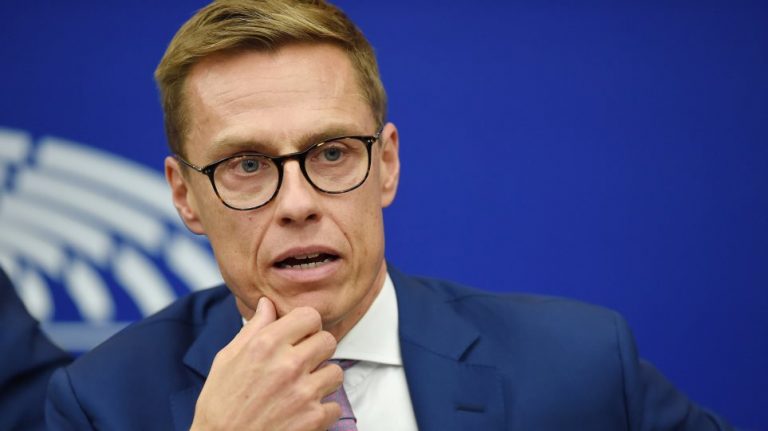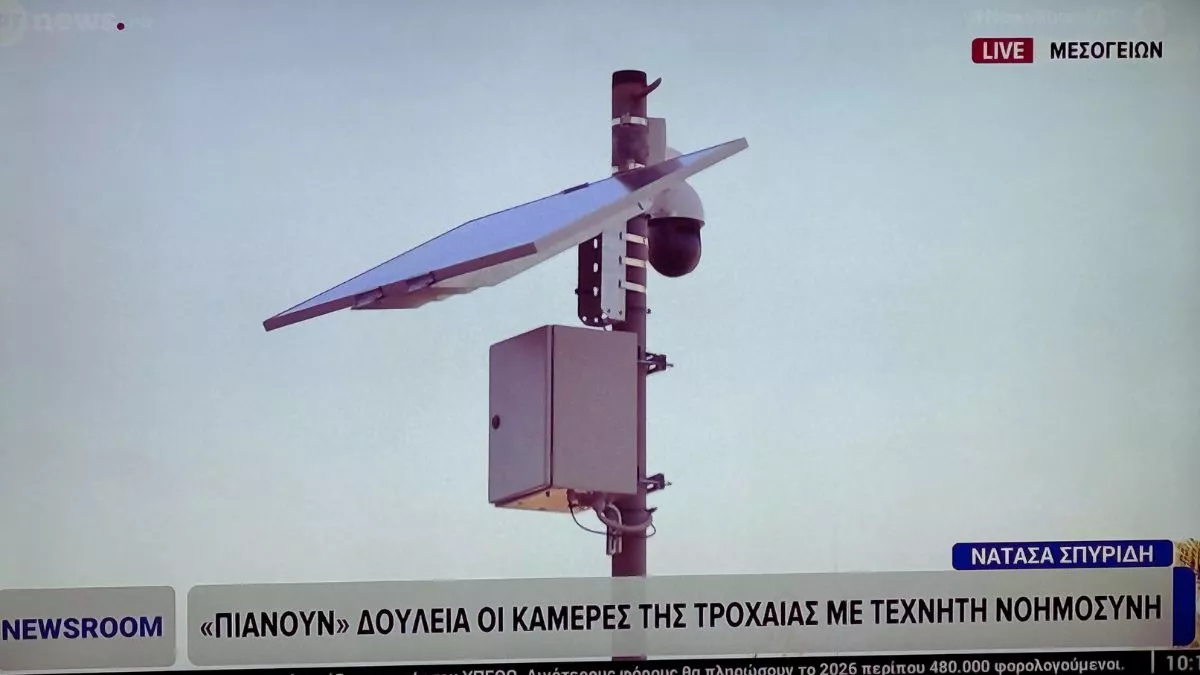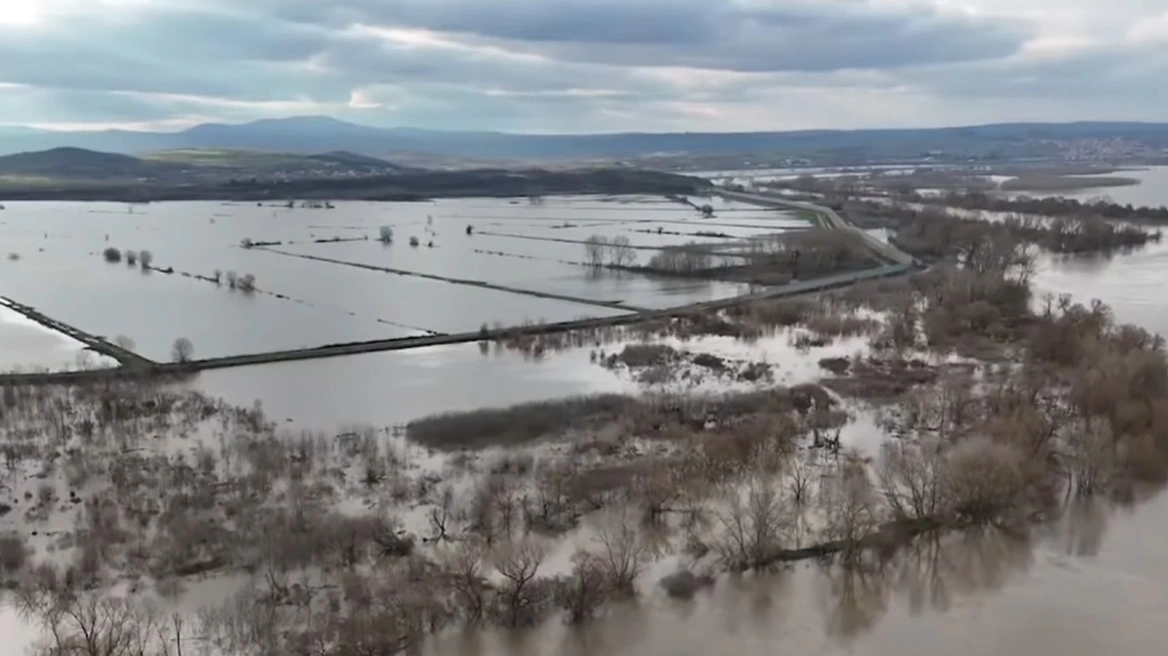The European People’s Party (ΕPP) Youth Congress brought Alexander Stubb to Athens last Saturday. The unconventional, dynamic, and extremely youthful 50-year-old Finn is claiming the Presidency of the European Commission, although the surveys so far are not in his favor.
A former acquaintance of Greece, Alexander Stubb as Finnish Finance Minister in the “hot” summer of 2015 supported at the end the attempt to rescue Greece within the Eurozone, although previously, as Prime Minister, he had not ruled out the possibility of a Grexit – even as a theoretical possibility.
A passionate pro-European, liberal and modernist, who studied in the US and France -which he admits he loves- speaks many languages and he is a devotee of new technologies, Stubb is a big fan of social media. Even if he does not get elected, he is a major emerging power in the EU’s political arena.
Why do you think you deserve to succeed Jean-Claude Juncker, that is to be the next President of the European Commission?
I believe that my own advantage is that I come from a small regional country of the European Union, Finland. This is the main argument I have in favor of my election in Helsinki on Thursday as a candidate for the presidency of the Commission, of course on behalf of the European People’s Party. The other candidate is Manfred Weber, a German. And I think it is good to remember that Germany already has many people in key positions in EU institutions. For example, three General Secretaries to the European Commission, Martin Selmayr, Helga Schmid and Klaus Welle are all Germans. Also, Claus Regling is German, the president of the European Stability Mechanism (ESM) as well as Werner Hoyer, that is, my boss at the European Investment Bank. German and Klaus-Heiner Lehne, chairman of the European Economic Court and many others. So, it would be nice to break the German monotony a bit.
Who will, in short, be the character of your own presidency if you are elected?
I would like to be the first Digital President of the European Commission. Because I believe that the future is there. As I mentioned in my speech at the conference of youth of the European People’s Party in Athens a few days ago, the main pillars of interest, not only for me but I think for everyone, are essentially three: a) The economy and jobs b) Politics and media c) Science and humanity. All of this, of course, is particularly important for the younger generation. More generally, my “manifesto” as a candidate for the European Commission is summarized as follows: I will defend the common values of the European Union. I will promote the Digital Revolution. I will help make the European economy work for everyone’s sake. I will pay great attention to climate change. I will design a refugee strategy. I will try to create a European Union much safer than it is today.
But objectively, and since Weber has secured the favor of Chancellor Angela Merkel, he is the favorite and you are the underdog. As such how do you approach the duel for the nomination?
For me it is like a football game as if Finland plays against Germany. It would help me to confront him in ice hockey, where the Finns are far better than the Germans. But since we play football, I have to score a few goals as soon as the game starts so I have hopes for the victory. Admittedly, however, it is very difficult to have a German candidate against you. Manfred comes from a big and powerful country – though you never know what’s going on. You do the best you can and wait for the result. I’m definitely not the favorite in this race. But I believe that I am already a winner in two respects: (a) The kind of campaign I have done because I have shown how to make a European campaign today (with a big, crazy tour around Europe, using social media and new tools, etc.); and (b) I believe that I have won the battle of values, because I promote not only in Europe but also elsewhere in the world a list of issues in which human dignity, respect and interest for the people next to you prevail. I oppose all those who want to rule with hatred and fear. I mention examples such as Donald Trump’s initiatives, Vladimir Putin’s informative war, the hate policy of many European leaders today. So, making a campaign full of positive messages, completely pro-European, has filled my supporters and myself with hope.
Kyriakos Mitsotakis, as leader of New Democracy, a member of the European People’s Party, has sided with your opponent, Manfred Weber. Is this bothering you?
We are friends with Kyriakos Mitsotakis, we are about the same age and we have trailed a similar course in the sense that we have both studied abroad, we share the same values, etc. Of particular importance is the fact that we both have adopted a very harsh attitude towards Viktor Orban, so I consider myself a good friend of Kyriakos. And of course, I was the foreign minister when Dora Bakogianni, his sister, was also foreign minister. It would be great to work with Kyriakos, no matter what happens with the election of the President of the Commission. I wish very much to maintain our close relationship. I wish the best for New Democracy and Kyriakos Mitsotakis as a leader of the new generation at the elections, whenever they are called.
What does Greece represent for you?
I have visited your country more than ten times in the past 25 years, both for business and family holidays. Everyone knows Greece well, it is one of the most beautiful and important countries in Europe – and not just for holidays. Personally, my university education and my way of thinking are based on Socrates, namely Plato, and Aristotle. If you are a democratic, thinking man, it is difficult to avoid Greece. In fact, for me, Greece is not only identified with the history and principles of philosophy, but the present too. Aristotle said there was nothing more noble than teaching young people. I agree, but I think that in the foreseeable future young people are the ones to teach, and that is because the restructuring and the changes brought about by the Digital Revolution are huge. I follow closely and systematically the developments in this field, trying to learn as much as possible about what is happening in the field of technology.
You speak very often about how important the role of the new generation is. Your whole style is very youthful and modern, much less official than what one would expect from a former prime minister like you. The strange thing is that while you look younger, you are actually a few years older than your opponent. So, would you say that real age does not matter in real politics?
Age is only one number. What really counts is the mentality. I focus mainly on the fact that, to date, the leaders of the European Union have always been some gray-haired gentlemen. So it would probably be a step forward if we had a middle-aged man, but not so gray-haired one. Or a woman – it is not as important after all. Speaking of the new generation, whoever has seen my campaign, I do not think he could say it’s boring or trivial. The message is that if we do not modernize the way we pursue politics, all these so-called “established” parties will simply disappear and die. There are very few young leaders in the EPP at this time. Kyriakos Mitsotakis is one of them, the Spanish Pablo Casado, Sebastian Kurtz and others. We must cultivate this new generation of our political party, which I tried to show myself with the kind of campaign I did.
Alexis Tsipras is also a young – or do you not only refer to age?
Yes, of course, Mr. Tsipras belongs to the leaders of the new generation. I simply disagree with many of his positions. I have always been convinced that Greece would have left the austerity program much faster if Tsipras and SYRIZA had not implemented ther policy. This is something I support publicly. I am very pleased that some very reasonable proposals on behalf of New Democracy and Kyriakos Mitsotakis, for example on taxation, structural reforms, investing in innovation, etc. are so constructive.
In Greece we remember from your term as Prime Minister of Finland that you were in favor of strict austerity. What do you remember from 2014-15?
I have watched very closely the developments, the whole adventure of Greece. Your flag and our flag have the same colors, white and blue. I am not an expert on your internal political issues. But I do not conceal my appreciation that Greece would have gone left the austerity programs 2-3 years earlier if political stability and common sense had prevailed, as Antonis Samaras meant. I remember when I was prime minister in the autumn of 2014 and in the winter of 2015, when we planned Greece’s exit to the markets. But because of Alexis Tsipras and SYRIZA, this plan became impossible. That is why such a difficult summer as that of 2015 followed. Unfortunately, SYRIZA’s policies delayed the whole process.
From your experience and your involvement in European politics, do not you recognize that the Greeks have a paradoxical ambivalence? That, while we believe we belong to the EU, we also verge towards Euroscepticism. Do you remember that the “no” in the referendum of 2015 reached almost 62%?
I do not think we can use the referendum as a criterion on whether the Greeks are pro-European or non-Europeans. Basically, the dilemma that was at the time was “do you want austerity or not?” And of course, every man -unless he is perverted- would answer “of course I don’t want austerity“. In my view, the Greeks have always been pro-Europeans, almost the same as we the Finns are. We are both in the periphery of Europe, but we belong to the institutional core of the EU. Greece and Finland are in the same time zone, you need about the same time to fly to Brussels from Athens and Helsinki. Throughout our history, we have made similar decisions about our independence. I have never treated Greece as an anti-EU country. On the contrary. However, there has been a double crisis, which has deeply shaken our European identity. Double because we had the crisis in the Eurozone (which I do not need to remind to the Greeks) and the refugee crisis (it does not need to be reminded also). But the fact that today we are at the least bad point of this crisis is primarily due to the efforts of the Greek people. And also to the mechanism of European integration.
Are you optimistic about the future of European integration?
I am clearly optimistic about the future of the European Union. In my program I am talking about the great moment of Europe. If we overcome the crisis and the problems, in the future we will be looking at this historic phase simply as an instantaneous problem in society, economy, etc. But if we do not handle it properly, then the whole building will collapse, it will be lost in oblivion. I believe in common sense. I believe in the European Union. My point is that the EU is like the internet: You can get out of it, if you want to be completely disconnected, but it is better to try to influence its content.
You often speak against the phenomenon of populism. But how do you explain his steady rise all over the world?
We have to overcome the populists – and the populists come from both the left and the right. Even from the center, to be honest. In Italy, for example, we have populists from both ends of the political spectrum. In Finland, we put the populists in the government and in fact we embraced them until they suffocated. The “True Finns” had three pre-election commitments: a) Austerity b) No more money to Greece and c) stop immigration. In the summer of 2015, I was Minister of Finance and we applied the toughest economic program in the history of Finland. After that, I contributed to the rescue of Greece because that was the right thing, and in the end, from an accident in history, we had the greatest migratory flow ever. And what happened to the popularity of the populists was that it was cut in half. The party was divided between the “True Finns” and the far-right wing. They finally came out of the government. This is a way to cope with populism: You assign them responsibilities, make them responsible. And then life is no longer so fun.
Ask me anything
Explore related questions





